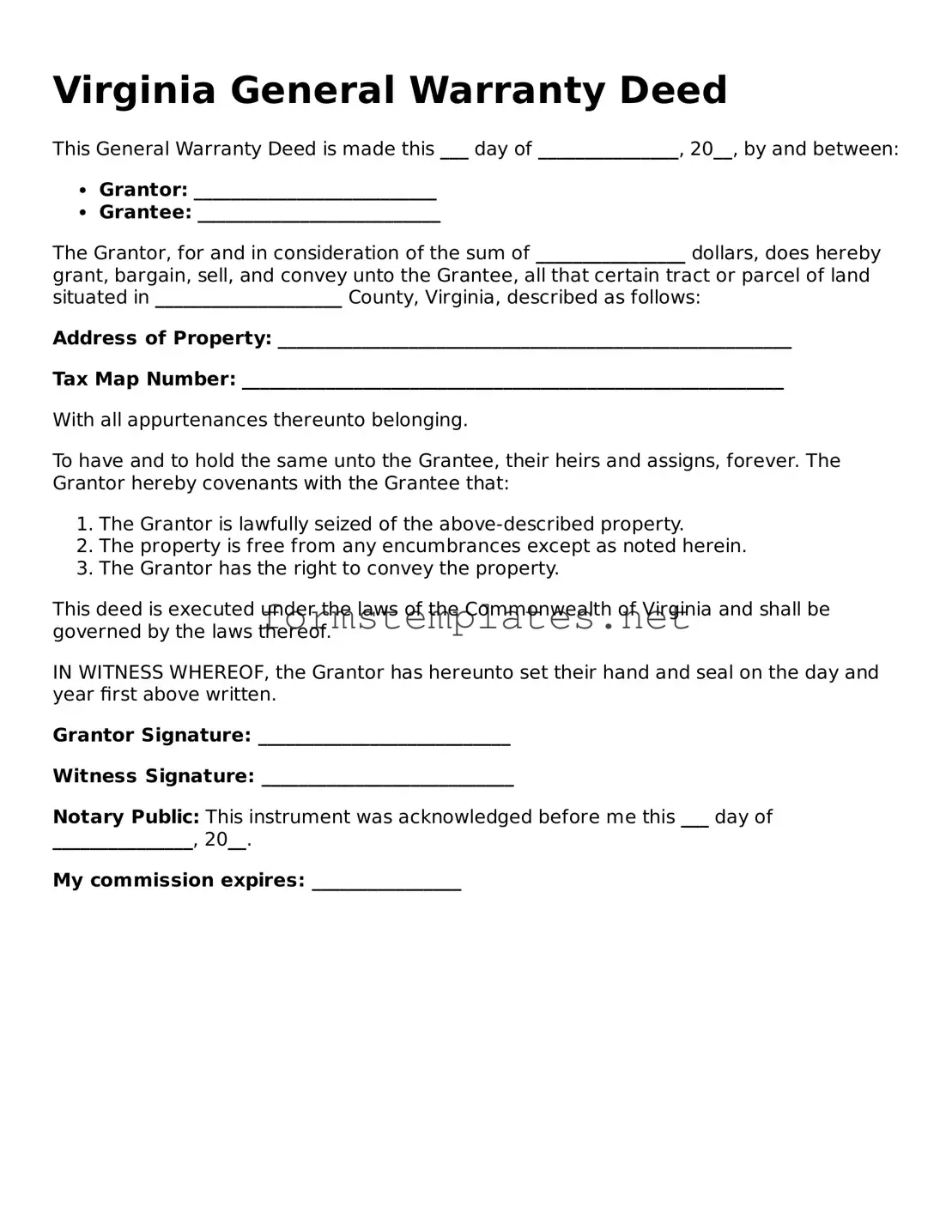Attorney-Approved Virginia Deed Template
A Virginia Deed form is a legal document used to transfer ownership of real estate from one party to another within the state of Virginia. This form outlines the details of the transaction, including the parties involved and the property being conveyed. Understanding the nuances of this form is essential for ensuring a smooth and valid transfer of property rights.
Open Editor Now

Attorney-Approved Virginia Deed Template
Open Editor Now

Open Editor Now
or
⇓ PDF Form
Your form still needs attention
Finalize Deed online — simple edits, saving, and download.